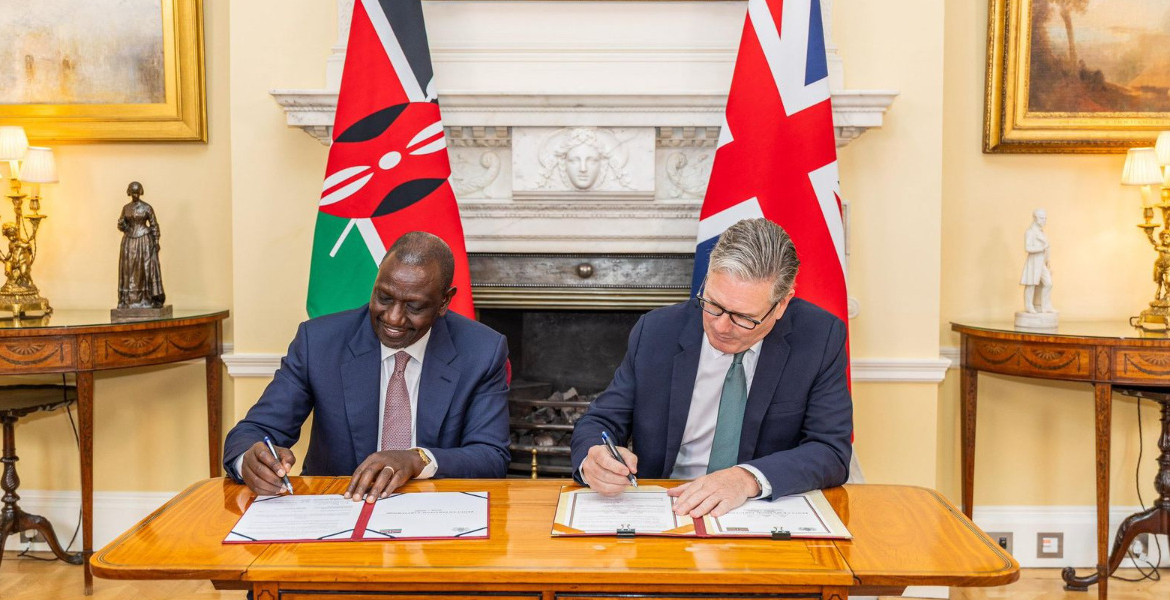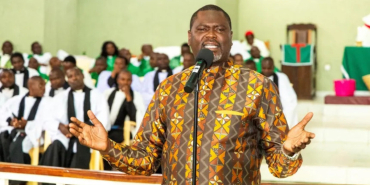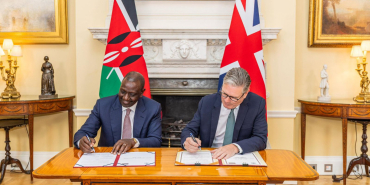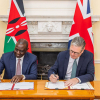Bilateral Trade Between Kenya and the UK Hits Sh340 Billion Milestone

Bilateral trade between Kenya and the United Kingdom has exceeded Sh340 billion (£2.1 billion) for the first time, marking an 11.9 percent increase over the previous year, according to data released by the UK Department for Business and Trade in late October.
The surge, covering both goods and services for the year ending September 2024, reflects rising exports on both sides. Kenyan exports to the UK grew by 14 percent, driven mainly by agricultural and beverage products such as coffee, tea, and horticultural goods.
UK exports to Kenya rose by 8 percent, led by machinery, refined oil, and vehicles. The growth highlights the strengthening of commercial ties under the renewed Strategic Partnership signed in July 2025, which targets a doubling of trade volumes by 2030.
British Chargé d'Affaires Ed Barnett described the progress as evidence of a reinvigorated trade relationship, noting joint efforts to remove market barriers and expand business opportunities. Kenya’s Principal Secretary for Trade, Regina Ombam, said the figures demonstrate the benefits of closer cooperation and align with Kenya’s strategy to diversify exports and increase value addition to enhance global competitiveness.
The UK remains one of Kenya’s largest foreign investors, with around 150 British companies operating in the country and employing more than 250,000 people. This investment continues to strengthen Kenya’s tax base and reinforce the broader economic partnership between the two nations.
However, Kenya’s goal of becoming a leading technology hub faces significant energy constraints. President William Ruto has acknowledged that plans to host hyperscale data centres, backed by Microsoft and UAE-based G42, have stalled due to limited power supply. Speaking to Kenyans in Qatar, he said a single data centre could require up to 1,000 megawatts of electricity-almost half of Kenya’s total generation capacity of 2,300MW.
Ruto warned that Kenya needs at least 10,000MW of power to meet its development ambitions, citing Ethiopia’s 5,400MW hydroelectric project as a point of comparison. He estimated that closing the gap would require an investment of about Sh1.2 trillion.
Despite these challenges, the government has pledged to accelerate energy and digital infrastructure projects. Recent agreements include a plan by Kenya’s EcoCloud and G42 to develop a 1GW geothermal-powered data centre, described as the first of its kind globally.
Another partnership between Microsoft and G42, valued at $1 billion, aims to establish an Azure cloud region for East Africa, promote AI adoption, expand digital training, and improve connectivity. The President criticised slow progress in infrastructure delivery, urging leaders to “think beyond the ordinary” to strengthen Kenya’s industrial and technological base.








Add new comment